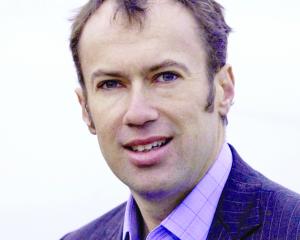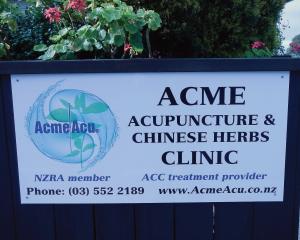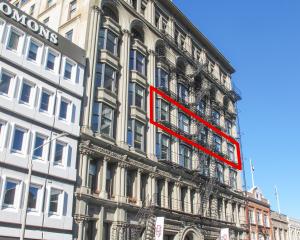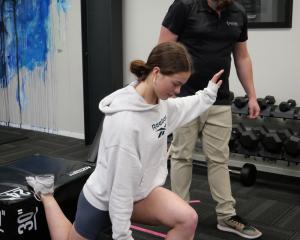IT'S FREE TO ENROL
It’s free to register or enrol with a GP — but they may charge a consultation fee each time you go to see them after that.
GPs normally charge a higher fee, often called a casual rate, for patients that aren’t enrolled at their practice.
If you enrol with a GP, your care will be subsidised — so you’ll pay a reduced consultation fee.
WHO CAN ENROL?
GPs can only enrol people who are eligible for publicly funded health services. When you enrol, you may be asked to show proof of eligibility — such as your passport or birth certificate. You’ll be asked to sign an enrolment form.
CHOOSING YOUR GP:
To check where you’re currently enrolled, call the Ministry of Health on 0800 458-448.
In New Zealand, you can choose the doctor or medical centre that you visit.
For a list of GPs and their fees, check the website of your local district health board (DHB), and/or primary health organisation (PHO).
The New Zealand Medical Council has a register of practising GPs and advice on choosing a doctor.
A GP may ‘close their books’ if they can’t safely take on any more patients. If this happens, the GP should refer you to their PHO for help with finding a GP. The PHO may put you on a waiting list and arrange for you to get care in the meantime.
YOUR MEDICAL RECORD:
Your medical record is kept with the GP you’re enrolled with, but any health professional involved in your care can look at your record. You can ask to look at your record at any time.
The Privacy Commissioner website has advice on health privacy.
WHAT YOU'LL PAY:
Doctors’ practices and medical centres are privately owned and set their own fees.
The cost of a visit will be lower if you’re enrolled with the GP, because the government subsidises the fee.
Some general practices join a ‘low cost access’ programme run by their primary health organisation. This means they get extra government funding to keep their fees at low levels.
COMMUNITY SERVICES CARDS AND HIGH-USE HEALTH CARDS:
If you’re visiting a medical centre where you’re not enrolled, you’ll pay less if you have a Community Services Card or High Use Health Card. (If you are enrolled at the centre, your fee will already be lower because it is subsidised by the government.)
Check the Ministry of Social Development website or call 0800 559-009 to see if you’re eligible for a Community Services Card.
ZERO FEES FOR UNDER-13S:
All children under 13 are eligible for free general practice visits, both during the day and after-hours. Not all GPs may provide free visits, so check with your GP first.
AFTER-HOURS CARE:
After-hours care usually costs more.
CARE PLUS:
If you have a long-term health condition or a terminal illness, you may be eligible for Care Plus.
GPs get extra government funding for Care Plus patients, so can provide additional care at no further cost to the patient.
OTHER FEES:
Immunisation is free for all children even if they aren’t usually eligible for publicly funded health services.
GPs can charge a fee for services provided outside of a consultation, such as a repeat prescription or referral letter to a specialist.
MATERNITY CARE:
Mothers of babies born in New Zealand are entitled to free essential care during and after their pregnancy.
ACCIDENTS:
If you’re seeing your GP about an injury caused by an accident, you’ll be charged a lower fee if it’s covered by ACC.
SPECIALIST CARE:
Your doctor may refer you to a hospital or specialist doctor for further assessment or diagnosis.
Specialist care is free through the public health system, but you may go on a waiting list.
If you want to get specialist advice quickly, you may wish to use a private hospital or specialist. You will have to pay a fee for this, unless you have private health insurance.
AFTER-HOURS CARE:
Call Healthline for free health advice from registered nurses, 24 hours a day. Phone 0800 611-116.
General practices are usually open business hours, Monday to Friday. Every GP is required to have arrangements for their patients to receive care outside these hours. After-hours care usually costs more.
Check with your GP where you should go if you do need care outside working hours. (You might have to visit an after-hours medical centre or another GP.)
(Courtesy Ministry of Health. See www.health.co.nz/your-health for more information)
WHERE TO GO FOR HELP:
Emergencies:
If a friend or family member needs urgent medical attention, phone 111 for an ambulance.
Call Healthline for free health advice from registered nurses, 24 hours a day. Phone 0800-611-116.
New Zealand National Poisons Centre can answer questions about poisons, 24 hours a day. Phone 0800-764-766.
Everyday medical advice:
Call Healthline for free health advice from registered nurses, 24 hours a day. Phone 0800-611-116.
Plunketline gives advice on parenting issues and your child’s health and wellbeing, 24 hours a day. Phone 0800-933-922.
MENTAL HEALTH HELP
For urgent mental-health advice, phone:
- Your nearest hospital
- Your district health board’s psychiatric emergency service or mental health crisis assessment team.
(Courtesy Ministry of Health. See www.health.co.nz/your-health for more information)
MENTAL HEALTH SERVICES
WHAT TO DO IN AN EMERGENCY:
If you’re seriously concerned about someone’s immediate safety:
Call 111 or take them to the Accident and Emergency Department (A&E) at your nearest hospital.
Phone your nearest hospital, or your district health board’s psychiatric emergency service or mental health crisis assessment team.
Remain with them and help them to stay safe until support arrives.
HELPLINES:
- Need to talk? (1737 — free call or text)
- The Depression Helpline: 0800-111-757
- Healthline: 0800-611-116
- Lifeline: 0800-543-354
- Samaritans: 0800-726-666
- Youthline: 0800-376-633
- lcohol Drug Helpline: 0800-787-797
(Courtesy Ministry of Health. See www.health.co.nz/your-health for more information)












